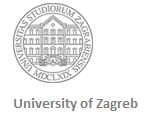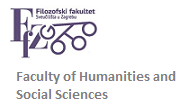Home » KNJIŽEVNI SEMINARI – 3. ili 5. semestar
Category Archives: KNJIŽEVNI SEMINARI – 3. ili 5. semestar
Aspects of American Romanticism (25/26)
Course title: Aspects of American Romanticism (A, 19th c.) Instructor:Dr Jelena Šesnić ECTS credits: 6 Language: English Duration: Semester 3 or 5 Status: elective Enrolment requirements: enrolment in 3rd or 5th semester Course schedule: Mon, 8:45-9:30 (A-105); Wed, 10:15-11:45 (A-105) Office: B-018 Phone: 01-4092060 E-mail: jsesnic@m.ffzg.hr Office hours: pon, 12-13 p.m.; čet: 10-11 a.m. Course description: The period […]
Aspects of American Romanticism (23/24)
Course title: Aspects of American Romanticism (A, 19th c.) Instructor:Dr Jelena Šesnić ECTS credits: 6 Language: English Duration: Semester 3 or 5 Status: elective Enrolment requirements: enrolment in 3rd or 5th semester Mon, 8:45-9:30 (A-105) Wed, 10:15-11:45 (A-105) Office: B-018 Phone: 01-4092060 E-mail: jsesnic@ffzg.hr Office hours: Mon, 12:00-13:00; Thur 10-11 Course description: The period spans the decades from the […]
Contemporary American Novel
Course title: Contemporary American Novel Instructor: Dr. Sven Cvek, Dr. Hrvoje Tutek ECTS credits: 6 Status: elective Semester: 3rd and 5th or 4th and 6th Enrollment requirements: enrollment in the 3rd and 5th or 4th and 6th semester Goal The course explores a number of novels which have been published since 9/11. The argument for […]
American Women’s Writing of the Nineteenth Century
Course title: American Women’s Writing of the Nineteenth Century (A, 19. st.) Instructor: Dr. Jelena Šesnić Fall 2022/23 Mon, 8:45-9:30 (A-105) Wed, 10:15-11:45 (A-105) E-mail: jsesnic@ffzg.hr Phone: 01-4092060 Office: B-018 Office hours: Mon, 12:30-13:30 p.m.; Thur, 10-11 a.m. Course requirements: Regular attendance, assignments 20%; seminar paper (6-7 pp, ca 2500 words; MLA) 30 %; continuous […]
Aspects of American Romanticism (2021/22)
Instructor: Dr Jelena Šesnić Course title: Literary Seminar (2nd/3rd year): Aspects of American Romanticism (A, 19th c.) Winter 2021/2022 Mon, 8:45-9:30 (A-105) Wed, 10:15-11:45 (A-105) Office: B-018 Phone: 01-4092060 E-mail: jsesnic@ffzg.hr Office hours: Mon, 12:30-13:30; Thur 14:30-15:30 Course description: The period spans the decades from the 1820s to approximately the 1860s marked by the flowering […]
Victorian Literature: Genres and Issues
Victorian Literature: Genres and Issues Course title: Victorian Literature: Genres and Issues Instructor: Prof. Borislav Knežević ECTS credits: 6 Status: elective Semester: 3rd and 5th Enrolment requirements: Introduction to Study of English Literature 1 and 2 Course description: This course is designed as an introduction to Victorian literature. The reading is made up by texts […]
British Romanticism: poetry (2019/20)
Course title: British Romanticism: poetry Course coordinator: Martina Domines Veliki, PhD Instructor: Martina Domines Veliki, PhD 2019/20 ECTS credits: 6 Language: English Duration: 1 semester (3rd or 5th, 4th or 6th semester) Status: elective Course type: 1 hour of lecture, 2 hours of seminar Prerequisites: Introduction to English Literature or Introduction into English Lit 1 […]
American Women’s Writing in the Nineteenth Century (archive 18/19)
Course title: American Women’s Writing in the Nineteenth Century (A, 19. st.) Winter 2018/2019 Mon, 8:45-9:30 (A-105) Wed, 10:15-11:45 (A-105) Instructor: Dr. Jelena Šesnić, Assoc. Prof. E-mail: jsesnic@ffzg.hr Phone: 01-4092060 Office: B-018 Office hours: Mon, 12:30-13:30 p.m.; Thur, 11-12 a.m. ECTS credits: 6 Language: English Prerequisites: Enrolment in the 3rd or 5th semester of the […]
The Nineteenth-Century American Novel
Course title: The Nineteenth-Century American Novel (A, 19) Mon, 8.45-9.30 (A-105); Wed, 9.30-11.00 (A-105) Instructor: Dr. Jelena Šesnić ECTS: 6 Language: English Duration: Semester 3 to 6 Status: elective Requirements: Introduction into the Study of English Literature 1 & 2 Course description: The novel figures as one of the key literary genres in the development […]
British Romanticism: poetry
Course title: British Romanticism: poetry (Former course title: English Romantic Poetry) Course coordinator: Martina Domines Veliki, PhD Instructor: Martina Domines Veliki, PhD ECTS credits: 6 Language: English Duration: 1 semester (3rd or 5th, 4th or 6th semester) Status: elective Course type: 1 hour of lecture, 2 hours of seminar Prerequisites: Introduction to English Literature or […]
Aspects of American Romanticism (2019/20)
Dr Jelena Šesnić Literary Seminar (2nd/3rd year): Aspects of American Romanticism (A, 19th c.) Winter 2019/2020 Mon, 8:45-9:30 (A-105) Wed, 10:15-11:45 (A-105) Office: B-018 Phone: 4092060 E-mail: jsesnic@ffzg.hr Office hours: Mon, 12:30-13:30; Thur 11-12 Course description: The period spans the decades from the 1820s to approximately the 1860s marked by the flowering of national literature […]
Contemporary American Novel (archive)
Course title: Contemporary American Novel Instructor: Prof. Stipe Grgas, Dr. Sven Cvek, Dr. Hrvoje Tutek ECTS credits: 6 Status: elective Semester: 3rd and 5th or 4th and 6th Enrollment requirements: enrollment in the 3rd and 5th or 4th and 6th semester Course description: The course explores a number of novels which have been published since […]
Aspects of American Romanticism (2016/17)
Dr Jelena Šesnić Literary Seminar (2nd/3rd year): Aspects of American Romanticism (A, 19th c.) Fall 2016/2017 ECTS credits: 6 Language: English Status: elective Duration: 3rd or 5th semester Mon, 8:45-9:30 (A-105) Wed, 10:15-11:45 (A-105) Office: B-018 Phone: 4092060 E-mail: jsesnic@ffzg.hr Office hours: Mon, 12:30-13:30; Thur 11-12 Course description: The period spans the decades from the […]
Victorian novel: Poetics and Politics
Course title: The Victorian Novel. Poetics and Politics (Former title of the course: Victorian novel – poetics and cultural politics) Instructor: Professor Tatjana Jukić ECTS credits: 6 Language: English Semester: 3 or 5 Enrollment requirements: Introduction to the Study of English Literature 1 and 2 Course description: The course attempts to describe and analyze the […]
Aspects of American Romanticism (2015/16)
Course Title: Aspects of American Romanticism (A, 19. st.)Instructor: Dr Jelena ŠesnićECTS credits: 6Language: EnglishStatus: electiveDuration: 3rd or 5th semesterFall 2015/2016Mon, 8:45-9:30 (A-105)Wed, 9:30-11 (A-105)______________________________________________________________________________________ Course description: The period spans the decades from the 1820s to approximately the 1860s marked by the flowering of national literature in post-revolutionary times; the adoption and americanization of European […]



